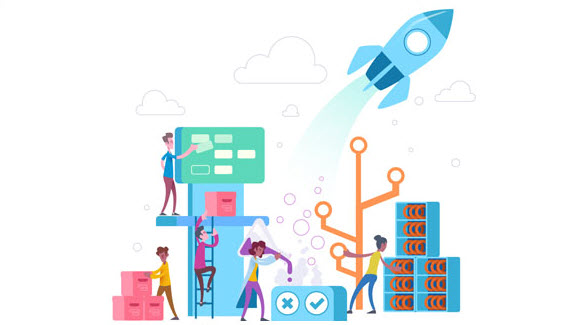Introduction
DevOps is a concept that aims to address the challenges associated with traditional application lifecycle.
"DevOps is the union of people, process, and products to enable continuous delivery of value to our end users." - Donovan Brown
Imagine that you work for a software development company in the retail industry. Your company is planning to migrate from an old app to a new app. However, the development team and the operations team have conflicting objectives. The development team wants to release new features quickly to attract more customers, while the operations team wants to ensure stability and reliability of the application. This conflict leads to delays in releasing new features and frequent downtime for the application. Your company realizes that it needs to adopt DevOps practices to overcome these challenges and deliver high-quality software efficiently and reliably.

In this module, learn about the key elements of DevOps culture and how they promote collaboration, transparency, shared responsibility, and continuous learning. The module covers topics such as collaboration, transparency, alignment, shared responsibility, accountability, empowerment, continuous learning, measurable outcomes, customer-centric focus, agility, automation, and security integration. Also, explore the value that DevOps brings to organizations, including accelerated time to market, adaptability to market dynamics, stability and reliability in operations, and minimizing mean time to recovery (MTTR). Additionally, understand how DevOps practices optimize application lifecycle management, impacting every phase from planning to operations.
By the end of this module, have a clear understanding of the principles, practices, and values of DevOps and how they can be applied to optimize software delivery and improve collaboration between development and operations teams.